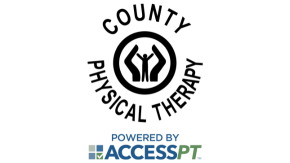Men’s Health Month presents an opportunity to discuss preventable health problems faced by men worldwide. While both men and women are affected by common medical conditions such as heart disease, obesity, and cancer, these conditions affect each gender differently. Recognizing the factors that influence men’s health can help us address these problems as a society and improve the health of men in our communities.
One of the initiatives of Men’s Health Month is education about health problems commonly affecting men that can lead to disability, poor quality of life, or death. Men have higher death rates compared to women for several health conditions, including cardiovascular disease, cancer, and diabetes. In 2017, the life expectancy for men was five years less than women, partially due to the prevalence of these diseases. Recognizing the risk factors associated with these conditions can help men make improved choices regarding their health. A healthy diet, regular physical activity, and reducing use of tobacco and alcohol products can lower the risk for these diseases and improve the odds of a longer, healthier life spent with loved ones.
Social factors also affect life expectancy in men. Increased risk taking and a higher percentage of men in dangerous jobs (mining, construction, firefighting, etc.) further reduce life expectancy averages. Recognizing these hazards can help men make safer decisions in the face of danger. Violence is also more common in men, disproportionately affecting African American men especially. Suicide is a leading cause of death for men in the US, underscoring the importance of mental health and seeking assistance from others despite stigmas that may exist within our culture.
To this end, Men’s Health Month is a time to encourage early detection and treatment of these preventable and manageable problems, as men tend to wait and delay medical evaluation. According to CDC estimates, men are half as likely to visit their physician for routine well checks and preventative screening than women. This can lead to silent progression of chronic disease as it goes unchecked. Delayed care is estimated to be a contributor to the disparity of life expectancy between men and women.
While physical therapists do not typically directly treat life threatening conditions, we do want to highlight the contributions we can make to men’s health. For instance, pelvic pain and urinary problems can occur following treatment for prostate cancer and treatment by a physical therapist specializing in pelvic health can be helpful in these situations. Furthermore, while many orthopedic problems affect men and women at similar rates (and may impact women at a greater rate for conditions such as osteoporosis and arthritis), often these conditions tend to worsen over time, especially if treatment is not considered. These orthopedic problems are exacerbated by obesity and other medical conditions commonly experienced by men. Working with your entire medical team, including your primary care physician and your physical therapist, is important to address these risk factors and improve holistic health.
If you would like more information about men’s health, risk factors for disease, or how physical therapy may be able to help improve the health and wellness for the men in your life, please call your nearby Access Physical Therapy office. Our therapists work hard to screen for disease and closely communicate with other care providers if risk factors are observed. We help promote healthy lifestyles to keep our patients moving and living quality lives. For more information regarding Men’s Health Month, please visit www.menshealthmonth.org



